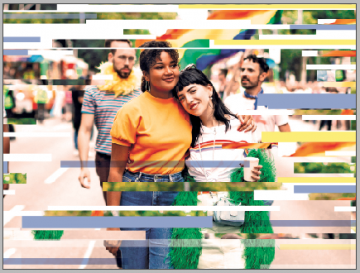“Too many LGBTI people continue to live in the shadows, afraid of being ridiculed, discriminated or even attacked. Even though some countries have advanced LGBTI equality, our survey findings show that overall there has been too little real progress, leaving many LGBTI people vulnerable. Their job and healthcare difficulties may worsen due to COVID-19. Policymakers should take note and do more to actively promote full respect for rights of LGBTI people,” says FRA Director Michael O’Flaherty.
European Commissioner for Equality, Helena Dalli added: “Despite the important steps forward regarding the equality of LGBTI+ people in the EU in the last years, LGBTI+ people still report high levels of discrimination. More worryingly, we have recently witnessed within the EU anti-LGBTI incidents such as attacks on prides, the adoption of ‘LGBTI ideology-free zone’ declarations, fines for LGBTI-friendly advertisements and others. Everybody in the European Union should feel safe and free to be themselves.”
The ‘A long way to go for LGBTI equality’ report looks at how around 140,000 LGBTI people in the European Union, the United Kingdom, Serbia and North Macedonia experience their human rights. It also underlines changes since FRA’s first LGBT survey carried out in 2012.
Comparing the two surveys reveals little overall progress over the seven years. The EU averages mask important differences between countries. In some, over 70% LGBTI respondent say society is more tolerant, while in others, up to 68% say it is less.
Key survey findings include:
- Openness: 6 in 10 avoid holding hands in public with their partners.
- Harassment: 2 in 5 respondents say they were harassed the year before the survey.
- Attacks: 1 in 5 trans and intersex people were physically or sexually attacked, double that of other LGBTI groups.
- Discrimination: 1 in 5 feel discriminated against at work and over 1 in 3 feel discriminated against when going out to eat, drink or being social.
- Schooling: 1 in 2 LGBTI students say someone among their peers or teachers supported LGBTI people.
- Economic situation: 1 in 3 LGBTI people say they have difficulties to make ends meet. The situation is worse for intersex and trans people (about 1 in 2).
This evidence will support the European Commission’s LGBTI Equality Strategy due this year. FRA calls on the EU and its Member States to put in place measures protecting the rights of LGBTI people, including:
- Hate crime – build a culture of zero tolerance towards violence and harassment of the LGBTI community so that LGBTI people can enjoy their right to move freely and without fear. Invest in training to ensure that police can recognise, record and properly investigate hate crimes against LGBTI people so that victims feel safe to report attacks and are treated equally.
- Reporting – make it easier for victims to report crimes and discrimination through online reporting tools, community liaison and police training. Adequately resource equality bodies so they can effectively support victims of discrimination.
- Discrimination - adopt the Equal Treatment Directive to extend protection against discrimination beyond employment. Realise comprehensive national actions plans to promote respect for rights of LGBTI people across all areas of life.
- Schooling - create safe and supportive environment for young LGBTI people at school. Help schools and teachers to share experiences, counter bullying of LGBTI students and ensure educational materials do not equate being LGBTI with having a disease.
- Lead by example - everyone can play their part so that equality becomes a reality.
This survey covers the EU 27 Member States, the UK, Serbia and North Macedonia. For the first time, it includes experiences of intersex people and young LGBTI people aged 15 to 17.
Together with the main survey results, FRA publishes an extensive online data explorer, which allows to filter data by country, by survey question and by L, G, B, T or I group.
In our video LGBTI people tell us about their lives - in their own words:
More information
For more information, please see the press pack or contact media@fra.europa.eu / Tel.: +43 1 580 30 653
Download Press Release also in:
- Macedonian (pdf, 362KB)
- Serbian (pdf, 358KB)
